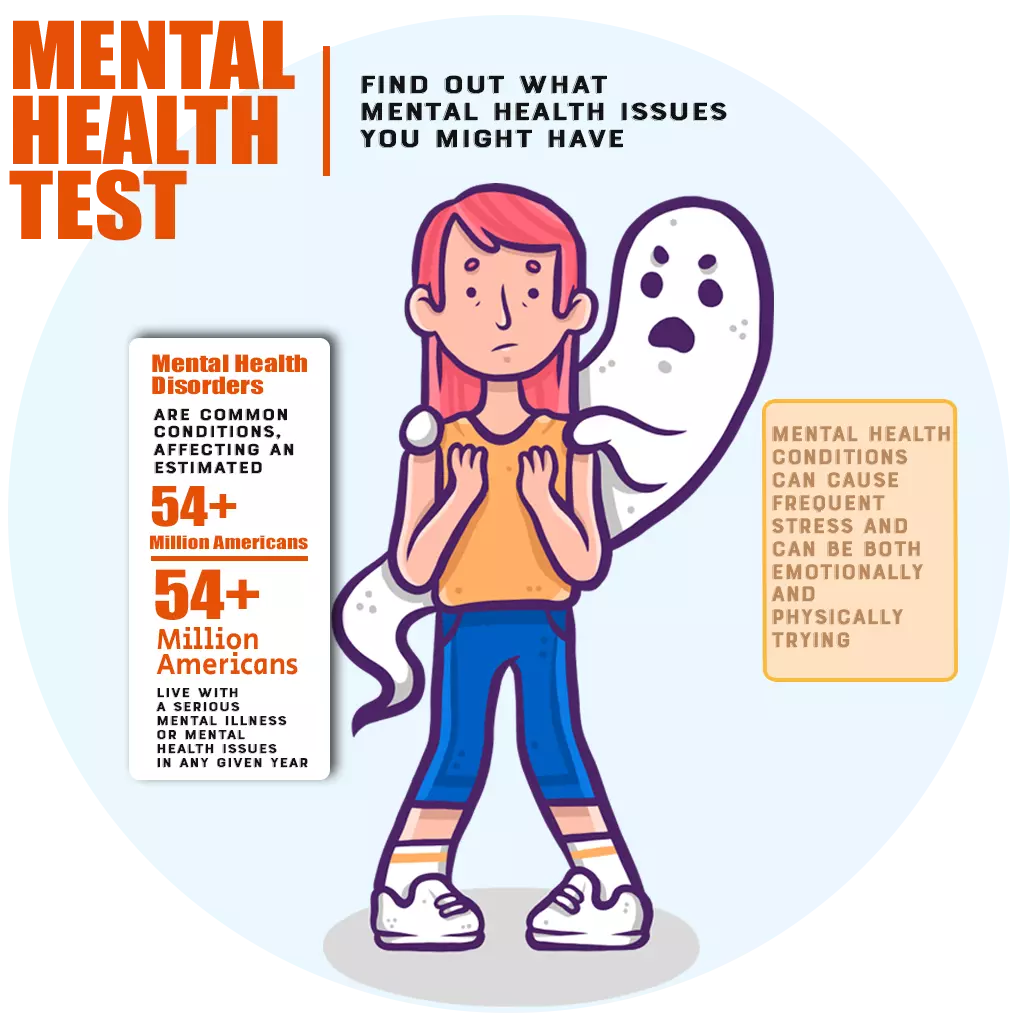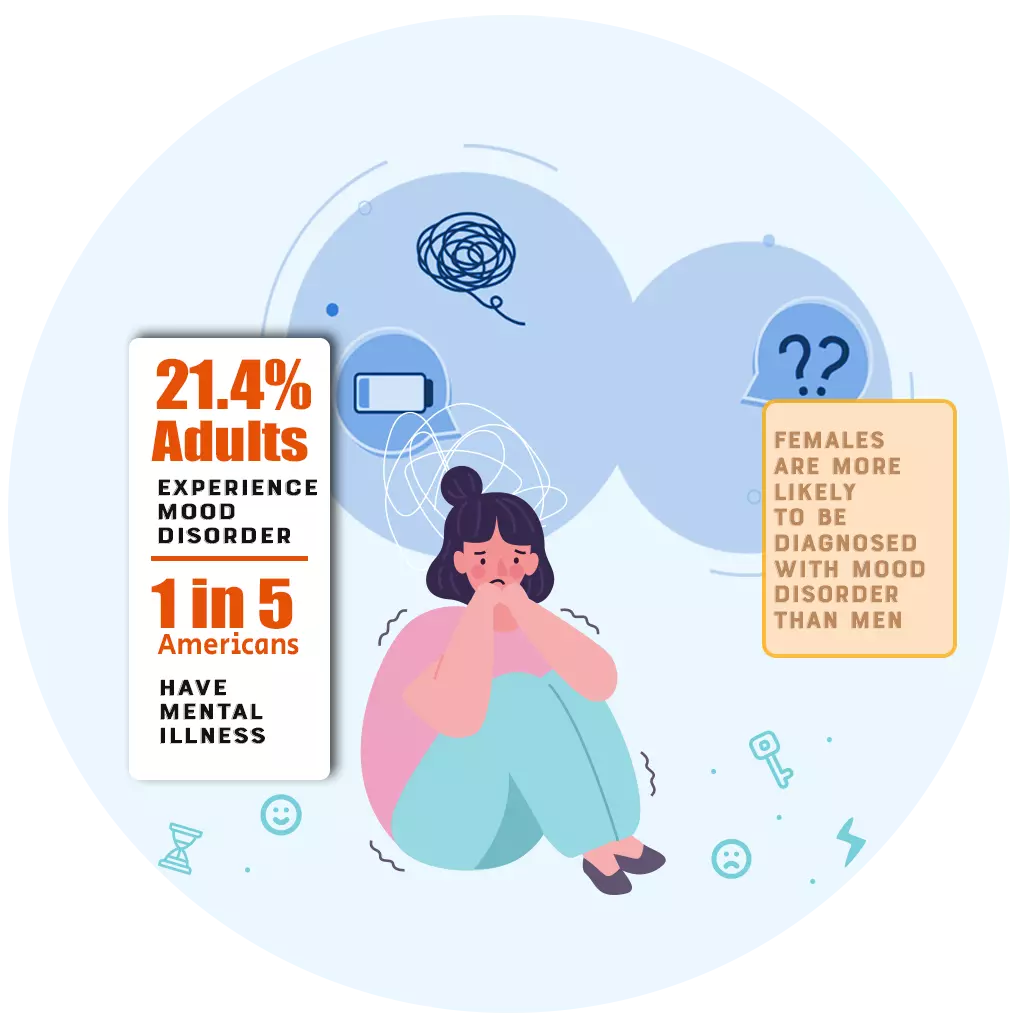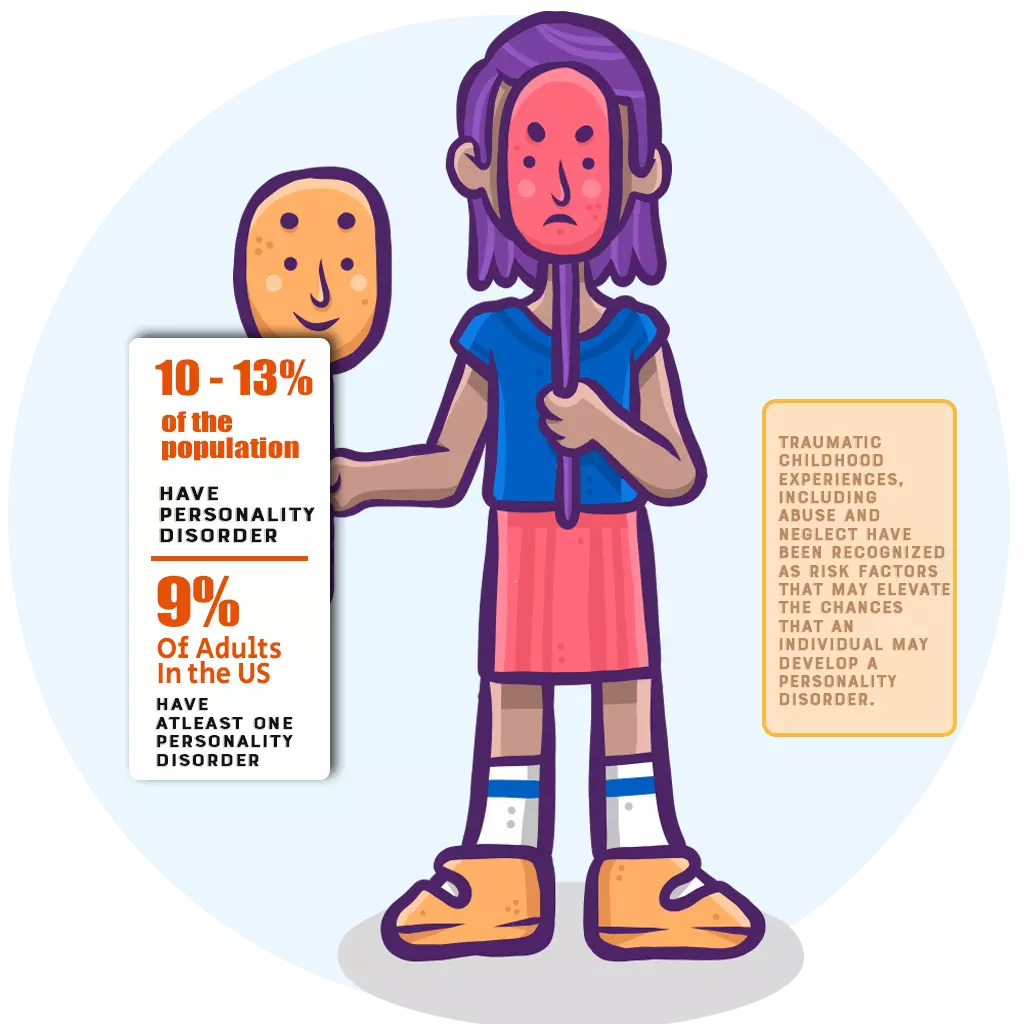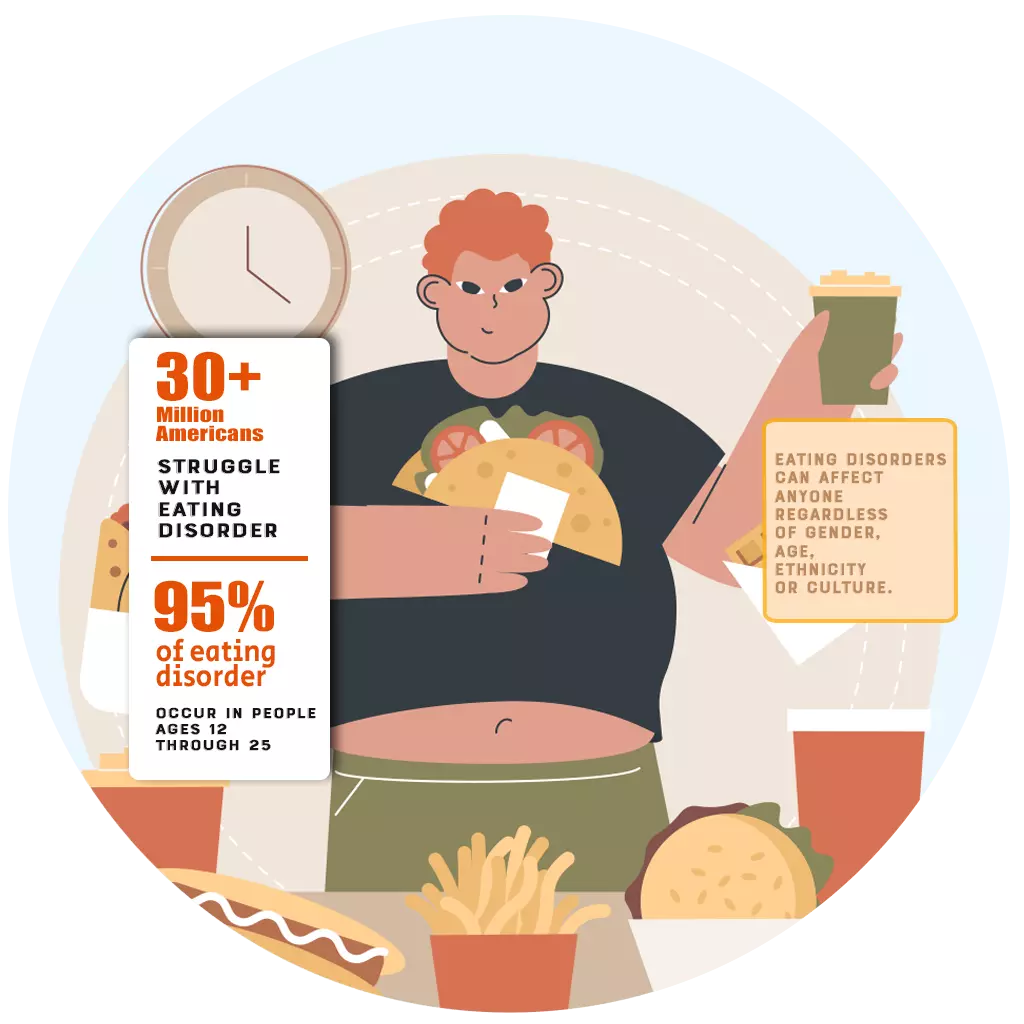The Most Comprehensive Free Mental Health Tests Online
Our free mental health tests help users understand their symptoms better so they can get the treatment they need faster than ever before. The best part? It only takes 3 – 10 minutes

Our mental health tests are designed to assess how a person is feeling and if they may be dealing with any mental health issues. The quiz look at a person's symptoms and behaviors to help determine if they may need professional help for any mental health conditions.

Mood Disorder Tests
Our mood disorder tests are designed to assess the signs and symptoms of various types of depression, anxiety, bipolar disorder, and other mood disorders. The tests help individuals gain insight into how they may be feeling so they can make changes or seek professional help if necessary.
Personality Disorder Tests
Our personality disorder tests are used to help identify and diagnose various types of personality disorders. The tests assess characteristics such as self-image, interpersonal relationships, cognitive functioning, and behavior to determine if a person has any signs or symptoms of a personality disorder.


Anxiety Tests
Our anxiety tests are designed to assess how a person is feeling and if they may be suffering from an anxiety disorder. The tests consist of questions about the frequency, intensity, and duration of their anxious feelings as well as any physical symptoms that may accompany the disorder.
Addiction Tests
Our addiction tests are used to help individuals determine if they may be dealing with an addiction. The tests focus on the individual’s behavior related to substance use and their ability to control that behavior.


Eating Disorder Tests
Our eating disorder tests are designed to help individuals understand what type of eating disorder they may be dealing with, if any. The tests consist of questions about the frequency and severity of their behaviors related to eating, self-esteem, and body image.
Psychological Tests
Our psychological tests are designed to measure the individual’s knowledge in a certain area such as intelligence, aptitude, and personality. It is used to help evaluate a person’s mental functioning and assess their abilities in certain areas. It can also be used as part of the process for making a diagnosis of a psychological disorder.

Frequently Asked Questions
- Withdrawing from friends, family, and activities you typically enjoy.
- Unusual changes in mood or behavior such as increased irritability, anxiety, or depression.
- Changes in sleeping patterns like difficulty falling asleep or staying asleep throughout the night.
It is important to pay attention to any signs that may indicate a mental health disorder and seek help from a professional if needed. Early intervention may reduce the severity of symptoms and help you live a full, healthy, and happy life.
It is important to understand that mental health is subjective and can vary from person to person. It may be difficult to determine if you are struggling with a mental health disorder, especially if you do not have any previous experience with it. The best way to know is by talking to a qualified healthcare professional who can assess your symptoms and provide appropriate treatments or referrals if needed.
It is also important to remember that you are not alone and that help is available. Seeking support from family members, friends, or a therapist can be beneficial for managing symptoms of mental health conditions. Taking the first step toward healing and recovery can be difficult, but it is essential for being able to live your best life.
- Genetics and family history: Mental disorders can be caused by a combination of genetic factors inherited from family members.
- Biological factors: Certain physical changes in the brain and other parts of the body can also lead to mental health conditions.
- Environmental factors: Exposure to traumatic events, abuse, or stressful life experiences can contribute to the development of mental disorders.
The most serious mental illness is often considered to be schizophrenia. This condition is characterized by distorted thinking, hallucinations, and delusions. People with schizophrenia can have difficulty in social situations and managing everyday tasks, making it difficult for them to maintain relationships or hold a job.
Other serious mental illnesses include bipolar disorder, severe depression, and borderline personality disorder. Each of these conditions can cause significant disruption in the patient’s life, making it important to seek appropriate treatment as soon as possible. Professional help and support can be beneficial for managing symptoms and improving quality of life.
The best way to manage mental health is by focusing on self-care, self-compassion, and seeking support. It is important to take time for yourself and engage in activities that bring joy and relaxation. Eating a balanced diet, exercising regularly, and getting enough sleep can also help to improve your mental health.
If you are struggling with mental health issues, it is important to seek professional help. A therapist can provide guidance and support while you work through your challenges. Medication may also be recommended in some cases to help stabilize moods and ease symptoms.
In addition to professional help, here are things you can do on your own to improve your mental health
- Practicing mindfulness
- Connecting with nature
- Engaging in physical activity
- Maintaining a healthy lifestyle
It is important to find what works best for you and make it part of your daily routine.
It is also critical to remember that recovery from mental illness can take time and effort. Be patient with yourself and remember that you are strong and capable of overcoming these challenges. With the right support, you can manage the severity of symptoms and help yourself live a full, healthy, and happy life.
Mental illness can affect anyone, regardless of age, race, gender, or socio-economic status. However, some groups may be at a higher risk for developing mental health conditions. This includes people who have experienced trauma, those with a family history of mental illness, and individuals with limited access to resources.
Furthermore, certain demographics such as people of color and those living in poverty are disproportionately affected by mental health conditions. Therefore, it is important to provide support for these vulnerable populations in order to reduce the prevalence of mental illness.
Depression is one of the most treatable mental illnesses. Many forms of therapy, such as cognitive behavioral therapy and interpersonal psychotherapy, have been shown to be effective in treating depression. Medication can also help to ease symptoms and regulate moods. With the right treatment plan and support, many people are able to manage their depression and live a full, healthy life.
Severe mental illnesses are generally characterized by disturbances in thinking, functioning, and behavior. Examples include schizophrenia, bipolar disorder, severe depression, and borderline personality disorder. These conditions can have a significant impact on a person’s life, making it important to seek treatment as soon as possible. Professional help and support is essential for managing symptoms and improving quality of life.
The most common mental illnesses include anxiety disorders, mood disorders, substance abuse disorders, and eating disorders. It is important to seek professional help if you are experiencing symptoms of these conditions. Treatment options may include medication, therapy, lifestyle changes, or a combination of these methods. With the right support, many people are able to manage their symptoms and lead full and healthy life.
If you know someone who is struggling with mental illness, it is important to offer your support. Showing empathy and understanding can go a long way in helping them feel safe and heard. Encourage them to seek professional help, and offer to accompany them if possible. It is also important to take care of yourself as supporting someone with mental illness can be emotionally draining. Make sure that you are getting the support you need so that you can continue helping in a positive way.
Preventing mental illness involves taking steps to maintain your overall health and well-being. This includes getting regular exercise, eating nutritious meals, practicing mindfulness, engaging in healthy relationships, and connecting with nature. Additionally, it is important to be mindful of any warning signs of mental illness and seek help as soon as possible if needed.
Mental illness is treatable and many people are able to manage the symptoms. However, it is important to remember that mental illness is not something that can simply be “cured” or “fixed.” With the right support, individuals can learn ways to cope with their condition and lead meaningful and fulfilling lives.
